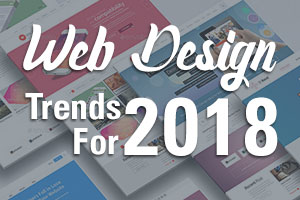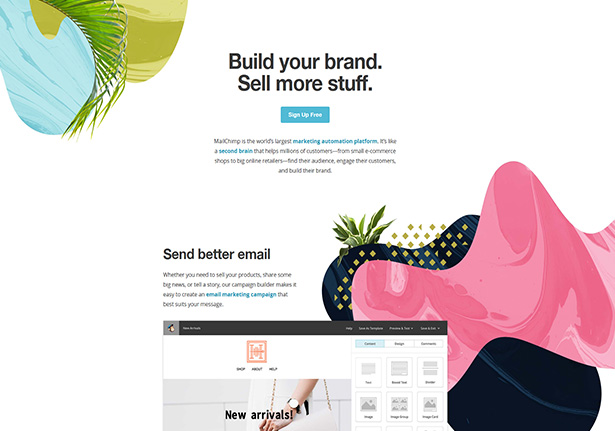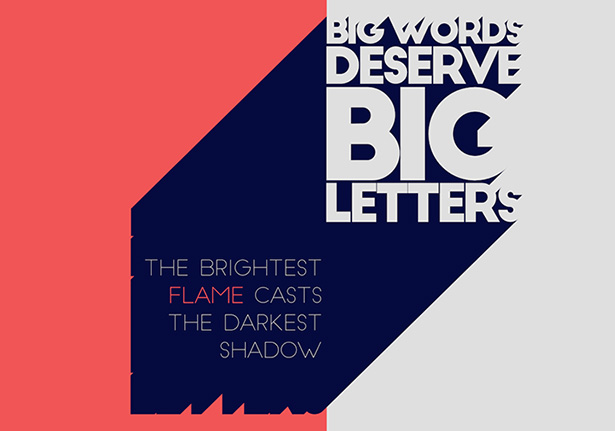5 of the Best Website Design Trends for 2018

Design is the process of collecting ideas, and aesthetically arranging and implementing them, guided by certain principles for a specific purpose. Web design is a similar process of creation, with the intention of presenting the content on electronic web pages, which the end-users can access through the internet with the help of a web browser.
Everything about your website – including the content, the way it looks, and the way it works – is determined by the website design. Web design is a process of conceptualizing, planning, and building a collection of electronic files that determine the layout, colors, text styles, structure, graphics, images, and use of interactive features that deliver pages to your site visitors. Professional Web design helps to make your business appear credible online.
As important as having a great domain name, professional web design can help you:
Satisfy customers. Professional Web design meets the needs of your visitors – telling them quickly what they want to know without unnecessary and confusing design items. Making sure the navigation in your Web site design is predictable, consistent and easy to understand will help build a positive relationship with your visitors.
Attract search engines. No matter how appealing your Web site design looks, it won’t show up on the search engine results pages if it’s not coded in a way that the search engines can read.
Avoid technical glitches. It doesn’t take much to turn a customer away. Lengthy loading times, broken links and dropped images are just a few of the web design issues that can be remedied by a professional Web design service.
By reaching out to customers and search engines alike, Website design serves an important dual purpose that has a great impact on your online sales.
So far, 2018 has been a remarkable year for web design.We’re seeing years of design evolution finally come to fruition in trends like Design Systems and Tactile Design, as well as fun and energetic styles like the return of retro. Now more than ever it’s crucial to reflect on what’s happening with web design, and what will continue into the future.
1.Component-Based Design Systems

If your company hasn’t implemented a design system yet, chances are you will in the next few years. According to the most recent 2017-18 Enterprise UX Industry Report, 67% of those surveyed are now currently building theirs, if they don’t have one already.
There’s a good reason for their success, too. Design systems are the natural progression of style guides and pattern libraries, but with so much more to satisfy the needs of modern companies.
So what is design system?
A design system includes design standards, documentation, and — one of its central advantages — a UI toolkit with patterns and codes. Design systems aim to ensure consistency across each of an organization’s products, and even within individual products themselves, and to use the optimal design solutions in any given situation.
What does a design do in practical terms?
Let’s break their design system into four areas:
- Product principles: Mission statements and approaches to product design, such as putting the merchant first and an emphasis on accessibility.
- Written content: A style guide for all written content, including grammar/spelling choices, voice & tone, and general guidelines like target reading levels.
- Visual properties: All things visual: color, typography, image guidelines, icons, chart presentation, etc.
Components: The nitty-gritty, covering design patterns, their usage rules, and quick-copy code.
Examples: Shopify.com, Mailchimp.com
2. Web animation
Animation can play a huge part in making ideas and interfaces easier to understand. In a world where everyone is in a hurry and time is short, animation can convey complex ideas in a short amount of time whilst at the same time engaging and informing.
Storytelling and personality is something that new and old brands are working on in order to capture users’ attention, and animations are starting to play a bigger role in this. Animations have shown and will continue to show the brand’s strength in our digital world, giving a strong personality to the brand, making it less static and more dynamic
So what specifically in animation are we going to see more of in 2018? Animated logos is an obvious trend, and one that gives a company a big opportunity to enhance their brand further. However, getting it right is a major responsibility. It’s a visual representation of the company in a tiny space and if it’s a good logo it packs in a lot of meaning
We’re also seeing the return of the GIF – partly thanks to the fact that basic animated GIFs can be read by almost anything. It looks like the world is ready (and indeed is crying out for) animation of everything, whether it be comedy loops of cats falling off tables or adding a sense of fun to the logo in your email signature.
3. Inventive typography

In the battle for eyeballs, typography is a powerful weapon, and its use on the web has broadened out this year, says Kelly Morr, senior manager of content strategy at 99designs. “Typography is powerful and the bigger the better. So while neo-grotesque sans-serif styles like Helvetica remain in vogue, designers are branching out, turning to the huge variety of typefaces available.”
Top designers believe 2018 will see the return of serifs to the screen, as well as increasing numbers of sites pairing serif and sans-serif fonts (as executed beautifully on GE) to create a dynamic user experience.
The fact that device resolutions are getting sharper, amping up the legibility factor, is also opening the door for a rise in custom fonts. Designers are opting for typography with tons of personality not only for emphasis, but also for aesthetic effect. All of this, plus the drama afforded by oversized typefaces, goes to show that 2018 will not all be about subtlety, and we can expect to see bold trends continue to develop.
4. Data storytelling
Greater accessibility to new technology will undoubtedly see an increase in the number of designers using animation as a means of storytelling,” believes Taylor.
“And with AR and VR advancements ushering in the prospect of simulated exploration of virtual models, it’s important that we remember to keep information and data at the heart of what we do. If we get this right, the overlapping spheres of data science and design will allow for ever increasingly informative, grounded and clear examples of data visualisation.”
For beginners looking to start exploring simpler data visualisation, there are plenty of new tools available. Libraries like D3.JS are great but can be a little intimidating for non-developers. But there are lots of platforms now that will import, visualise and host your data projects. Platforms like Datawrapper are great for easily producing a range of standard charts, and Flourish are doing great things with journalistic, storytelling style visualisations.
However, with all this innovation must come some caution. In the age of fake news, high-quality data viz also needs to mean clear, transparent and trustworthy.
5. Unexpected scrolling rates
Parallax may be passe(no longer fashionable) these days, but that doesn’t mean designers aren’t interested in linking scrolling to element movement in intriguing ways.
Each photo on a site acts normally until you scroll past them, at which point they rapidly ascend, faster than your scroll rate. This gives a site an interestingly ethereal feel that plays nicely with the austere, monochromatic photos and their severe models.
As interactions and animations become an even more prominent part of our online experiences, expect to see more dashes of the unexpected thrown in to add spice.
Conclusion
It’s tough to predict which design trends will define 2018. But I always like to watch for yearly changes in web design to get a creative barometer for the years to come.
These are just my predictions but I’m sure we’ll see a whole lot more. If you have any other suggestions feel free to share your thoughts.
All I know is that no matter which trends climb over the next 12 months, it’s safe to say that the web design industry is guaranteed to change
